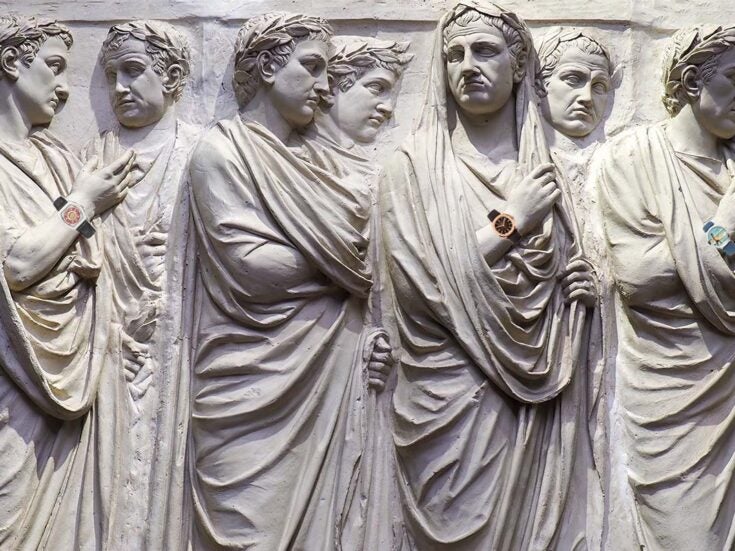
And the Show Went On: Cultural Life in Nazi-Occupied Paris
Alan Riding
Duckworth Overlook
432pp
Review by Mark LeFanu
Winner of the Spear’s Book Award for Social History of the Year
Buy And the Show Went On on Amazon
The Armistice brokered at Compiègne by the French government under Pétain after the fall of France in June 1940 imposed humiliating terms of submission on the vanquished. The price for cessation of hostilities was continuing German occupation of two-thirds of the country in addition to an open-ended bill amounting to 400 million francs per day (20 million Reichsmarks) to maintain Hitler’s armies in situ. German prisoners of war were to be freed forthwith, while the 1.5 million Frenchmen captured under arms in the month-long duration of the battle were shipped off to Germany to spend the rest of the war in captivity.
In return for this, Vichy (the spa town in the Auvergne to which the French government moved after a temporary sojourn in Bordeaux) was permitted to continue controlling the civil administration not only of the chunk of central southern France that had Vichy at its centre, but also — which is sometimes forgotten — Paris itself, the rest of the occupied territories and the colonies (and this arrangement continued even after the German armies moved permanently into Vichy territory in November 1942).
Germany had no wish as such to ‘enslave’ France: a certain amount of autonomy was always part of the package. It was roundly seen as an advantage to both parties that ‘the show should go on’ — freeing Hitler to pursue his wider war aims elsewhere.
Paris, anyway, was always going to be spared destruction if possible. Inflatedly proud of everything German, the Nazis nonetheless shared most people’s prejudices in favour of the beauty and amenity of the world’s capital of culture. Having conquered it and relieved it of many of its most precious art treasures, they felt that the streets, boulevards and cafés (not to mention the city’s upmarket brothels) were possessions to enjoy and to gloat over.
As for the city’s inhabitants: unless you were a Jew or an outright résistant, you would be left to get on with your business. It is this fascinating area of cohabitation, in all its complexity and nuance, which the veteran American journalist Alan Riding explores in a powerfully researched book that tells the whole story for the first time in detail, in English.
Various ‘levels’ of co-operation are identified by the author. In the first place there was the collection of journalists, writers and artists who either through fascist conviction or ingrained anti-semitism, or sometimes merely low opportunism, actively welcomed the Germans: these guys wanted Hitler to win! Into this category fall the virulently anti-Jewish writers Louis-Ferdinand Céline and Lucien Rebatet, along with gifted, if misguided, writer-critics such as Robert Brasillach (shot after the war) and Pierre Drieu La Rochelle (committed suicide).
Even here interesting distinctions can be made, however: Charles Maurras, leader of the political grouping Action Française and France’s best known pre-war fascist, combined a right-wing political stance based on hatred of Bolshevism, with a deep anti-Germanism that must have sorely tested his cultural allegiances (the dilemma didn’t make him a résistant, however, and after the war he was properly punished).
Moving on to the next level of collaboration, the reader encounters the numerous figures who, while not actually liking the Germans very much, preferred making a living to going into hiding or exile. Among these are some of the best-known artists and writers of the century — titans such as Picasso, Cocteau and Sartre.
Also included in this same category of attentisme (people who ‘waited out’ the war, hoping for eventual Allied victory) were many figures from the world of popular entertainment: singer-performers such as Edith Piaf, Charles Trenet and Maurice Chevalier, actresses such as Danielle Darrieux, Arletty and Viviane Romance. How did such individuals bear up in the war? Did they, in retrospect, keep their noses clean?
Unsurprisingly, some of them come off better than others. The reader will be interested to discover that Picasso emerges from the Occupation rather well, declining (unlike other painters, such as Derain and van Dongen) to lend any of his immense prestige to various cultural initiatives — conferences, exhibitions, freebies — that were put in train by the German embassy to cement the notion of German-French friendship. Though he dined out most days, it was not in the company of German officers, something that couldn’t be said of other prominent men-about-town.
When, in 1945, the reckoning came, those on the sharp end of their compatriots’ scorn attempted to defend themselves with a variety of excuses. If, like Piaf and Chevalier, you had travelled to Germany and entertained German audiences, you could always claim — truthfully enough — that your actions resulted in the release of at least a handful of French soldiers from prisoner-of-war camps. If on the other hand, like Cocteau, you had hobnobbed with high-ranking German officers, you needed to argue that just this ‘well-placedness’ managed to secure the safety — and the lives — of certain Jewish artists who were friends of yours.
Others took the line that there were matters that should always occupy the private realm. Arletty, the incandescent star of the Occupation’s finest movie, Les Enfants du Paradis, and who from 1941 lived with the Luftwaffe officer Hans Jürgen Soehring, notoriously summed up this stance with an epigram: ‘My heart is French,’ she opined, ‘but my ass is international.’
When it came to the crunch, in fact, what was collaboration? Supposing the plays of even so famous a résistant as Jean-Paul Sartre were performed in Paris in theatres in which there ‘happened to be’ German officers present in the audience, was that collaboration?
In a way, yes; though perhaps not heinously so. Riding’s attitude in such matters is fair-minded, intelligent and commonsensical. His book avoids sanctimony, without letting us feel that moral judgment is irrelevant. The great virtue it possesses is clarity and comprehensiveness. Also, it must be said, readability. This is popular history writing of the very highest order.
Buy And the Show Went On on Amazon








